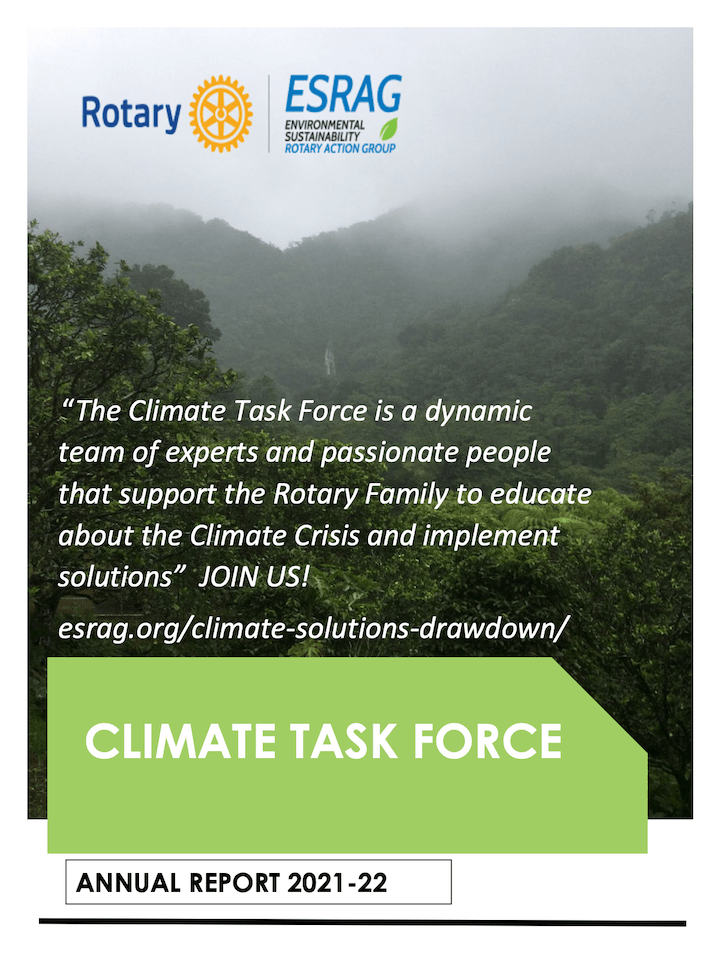ESRAG has a Memorandum of Understanding (MOU) with Project Drawdown www.drawdown.org to educate Rotarians to implement Drawdown Solutions to reverse climate change as quickly, safely, and equitably as possible. ESRAG’s Climate Task Force is ready and eager to help your Club, community, or District choose and implement significant climate solutions.
The Task Force includes four different teams ready to share their expertise with you on specific strategies Rotarians are advancing across the globe: Food Waste Solutions, Cleaner Cookstoves, Plant-Rich Diet, and Renewable Energy. The Annual Report includes the monthly meeting dates and contact information for the leaders of each team. When you visit ESRAG’s Climate theme, https://esrag.org/climate/ you’ll find additional resources including Refrigerant Solutions, Food Systems, and RCAT (Rotary Climate Action Teams).
Only 12 pages long, with colorful graphics, this is a great first look for Clubs and Districts wondering how to participate in Rotary’s newest Area of Focus. Overcoming the hurdle that many people believe the climate crisis is too huge to tackle, the report describes high-impact solutions that Rotarians are already implementing. This empowers readers by providing options they can adapt to their own culture, community, and talents.
The report provides an overview of the importance of each of the four strategies in reducing greenhouse gas emissions, plus inspiring examples of projects. It’s packed with informative links, and provides an overview of specific ways Rotarians can mitigate global warming and make communities more resilient. Examples include the 15-Day Plant Rich Diet Challenge video playlist and cookbook, and the new Solar Habitat handbook.
Each team’s report includes powerful statistics, such as the fact that three billion people in the world currently cook over open fires, and 17% of the world’s edible food is wasted – “if food waste was a country, it would be the world’s third largest greenhouse gas emitter ”-and powerful evidence of Rotary impact, like the Lunch out of Landfills project in Maryland through which schools are diverting 80% of the food that previously went into the garbage.
One of the most exciting projects was created by collaboration between three of the four Climate Task Force teams: Solar Refrigeration for a Community Farmers Market in the Virgin Islands. Using clean energy and batteries, this project helps vendors reduce spoilage. It ncreases food security, access to locally grown organic food, energy equity, economic development, and provides back-up power for resilience in natural disasters.
The Climate Task Force Co-Chairs are Rob Anderson of Canterbury, Australia and Doug White of St. Thomas, US Virgin Islands. You’re welcome to discover more about ESRAG members’ climate projects by attending the monthly all-team meeting every third Thursday at 1 pm Chicago time. The four teams rotate in offering a speaker.
